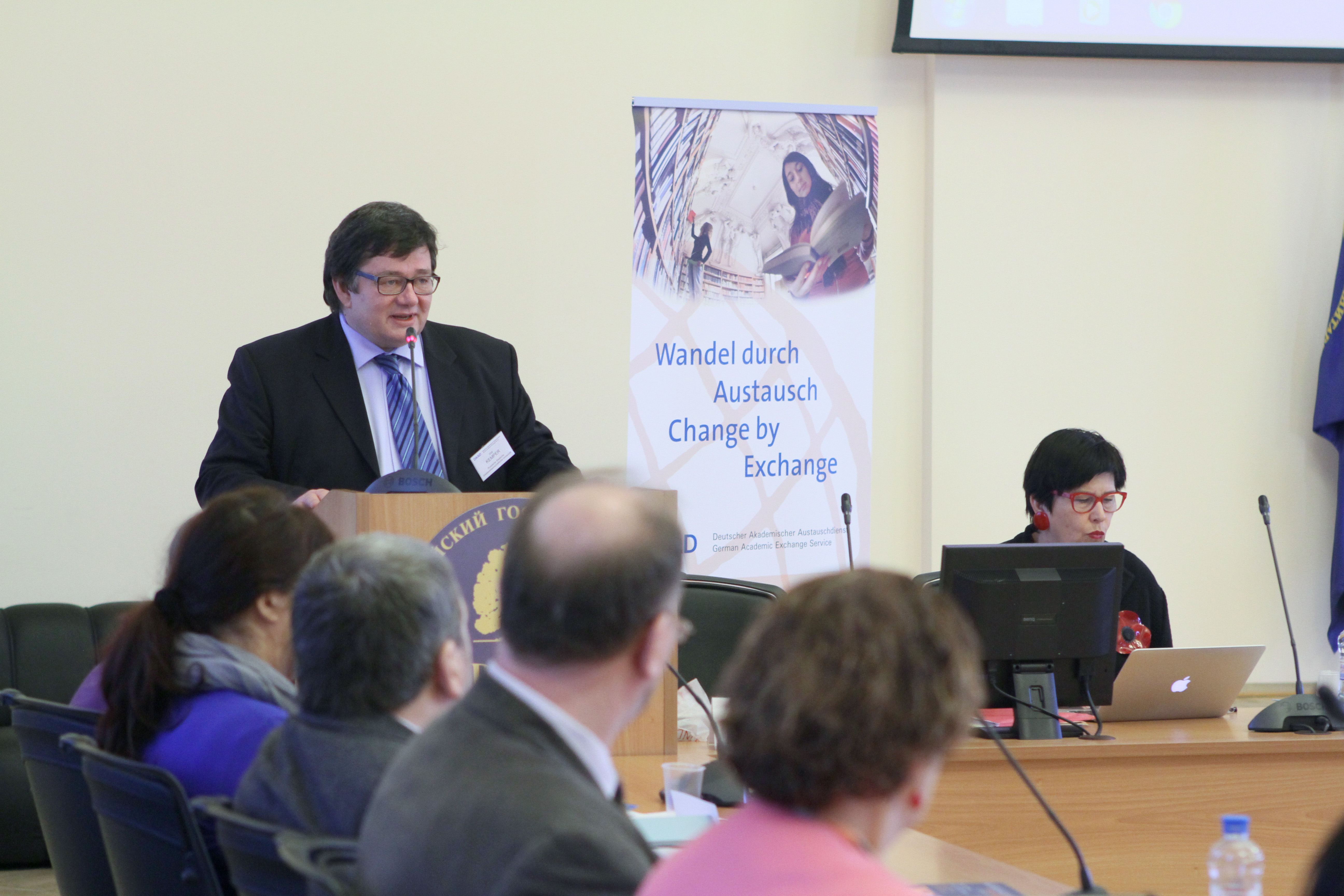RTG 1956 Presents Itself at Pan-Russian Germanic Studies Conference
(14.03.16) Between 10-12 March, the Russian State University for the Humanities (RGGU) hosted a congress on the topic "Boundaries and Overcoming Them". This year the pan-Russian XXXIIIth DAAD Germanic Studies Conference focused on the DFG-funded International Research Training Group 1956 "Cultural Transfer and 'Cultural Identity' – German-Russian Contacts in a European Context", based at the University of Freiburg and RGGU.

Professor Dirk Kemper (RGGU) and IRTG spokesperson Professor Elisabeth Cheauré (University of Freiburg) at the opening of the German studies conference
Over 100 researchers came to RGGU for the opening of the conference. The attendees were welcomed by Professor Dirk Kemper, holder of the Thomas Mann Chair for German Philology and leader of the Institute of Russian-German Literary and Cultural Relations at RGGU, and senior representatives of the university leadership, the German embassy in Moscow and the international offices of the DAAD and the DFG. The introductory presentation was given by Professor Elisabeth Cheauré, the Freiburg spokesperson of IRTG 1956. She focused on the structure and substance of the DFG Research Training Group.
Overcoming boundaries is a very important issue in Germanic studies in Russia today. In an era of internationalisation in the university landscape in both Germany and Russia, cross-border degree programmes are being developed and new challenges are demanding innovative forms of cooperation between various departments and institutions. The German-Russian Research Training Group 1956 transcends boundaries between individual disciplines in linguistics, literary studies, philosophy and identity research by seeking to respond to contemporary developments in both research nations.
The series of conferences, established in Russia over 30 years ago, originated with an initiative of the Bilateral Germanic Studies Committee between the USSR and the GDR. Since 1993 the DAAD has continued the tradition, bringing together Germanists from all regions of Russia for an annual conference. The event traditionally concentrates on issues in language teaching and language learning research and aspects of university and educational policy. It is held in a different location each year to reach as many regions of Russia as possible and establish new contacts.
Further Information: